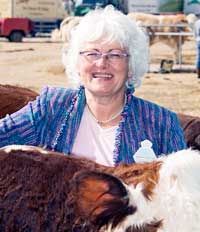Mariann Fischer Boel to step down

EU agriculture commissioner Mariann Fischer Boel has announced that she will not stand for a second term in office, bringing to an end months of speculation in Brussels.
The Danish commissioner made her announcement at the informal farm council meeting, being held in Vaxjo, Sweden this week, though the exact date of her retirement is still in some doubt.
The current EU commission is officially due to end its five-year mandate at the end of October. But this is likely to be extended – possibly until the end of the year – to allow Ireland time to hold its EU referendum, and for three other member states to ratify the Lisbon Treaty.
Once ratified, this will change the way the EU operates, and particularly how agricultural legislation is enacted. So it makes sense to delay the appointment of a new commission until those ground rules are clear.
Mrs Fischer Boel told journalists of her intention to stand down at the informal council meeting on Sunday (13 September).
It is understood that she had been asked to stay on by both the current commission president Jose Manuel Barroso and Danish prime minister Anders Rasmussen. But at age 66 she decided it was time to go. “If I was 10 years younger I would not leave,” she said.
Mrs Fischer Boel’s impending departure brings to an end a five-year term in which she has won the respect of those who have worked with her.
After a somewhat inauspicious start – she had to endure a second “confirmation hearing” in front of the European parliament, having under-performed at her first attempt – she earned a reputation as a tenacious negotiator, able to stand her ground.
Taking office after the ten-year tenure of Franz Fischler, her role was more to do with completing old reforms, rather than initiating new ones. This included reform of the sugar regime in 2005, followed by fruit and vegetables and wine in 2007.
Her centrepiece, however, was the CAP “health check” in 2008, in which she made further steps towards full decoupling of aid payments, increased compulsory modulation to transfer funds to rural development, and paved the way for the removal of milk quotas in 2015.
Speculation is already mounting in Brussels as to who will replace the affable Dane, though no clear candidates have emerged just yet.
- What’s your verdict of Mariann Fischer Boel’s five year term in office? See our Forum debate
- And see Phil Clarke’s Business Blog for our assessment
